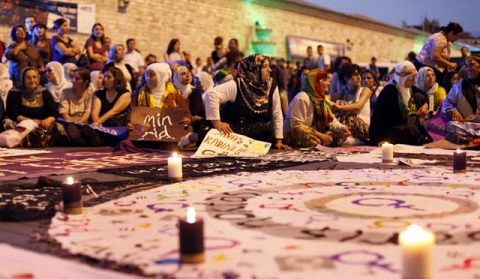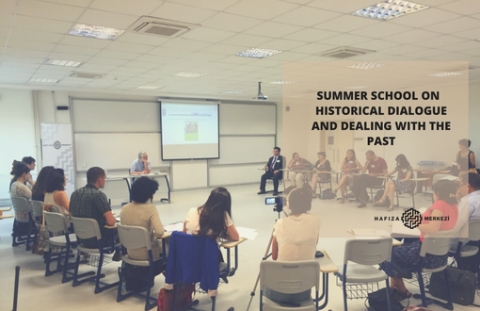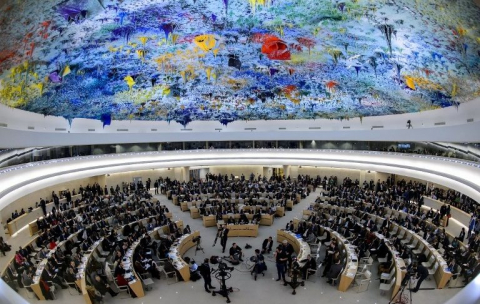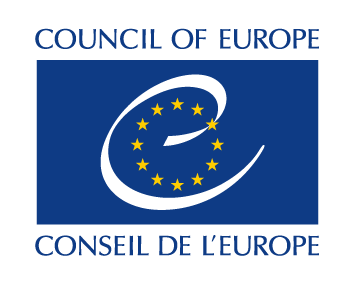
We Presented a Report on the Enforced Disappearances to the Committee of Ministers of the Council of Europe
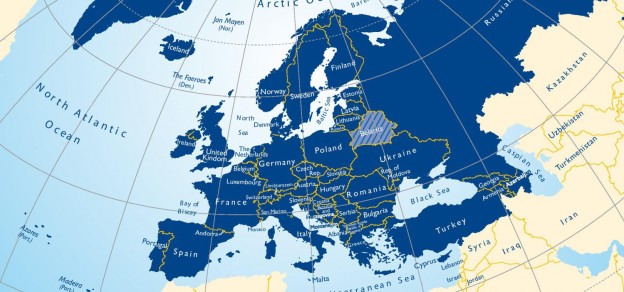
Council of Europe member countries
Hafıza Merkezi in collaboration with the, European Center for Constitutional and Human Rights (ECCHR) presented a monitoring report on Enforced Disappearances to the Committee of Ministers (CM) of the Council of Europe on January 15, 2016. The report evaluated the political and legal measures Turkey has taken on decisions of the European Court of Human Rights where Turkey was found to be at fault. The report was then forwarded to the government of the Republic of Turkey to deliver its opinion. Following the lack of response by the government, The Committee of Ministers published the report.
The original report in English can be found here, while the Turkish will be delivered in a short while.
Monitoring the Implementation of the Judgments of the European Court of Human Rights: What Does it Mean?
The task of the Council of Ministers (CM) of the Council of Europe is to monitor the implementation of the obligations of its member states stemming from ratifying one or more conventions of the European Council (European Convention of Human Rights, European Social Charter, the Framework Convention on the Protection of the Rights of Monitories, and the Convention on the Prevention of Torture). Within this context the CM is responsible for monitoring the execution of the judgments of the ECHR.
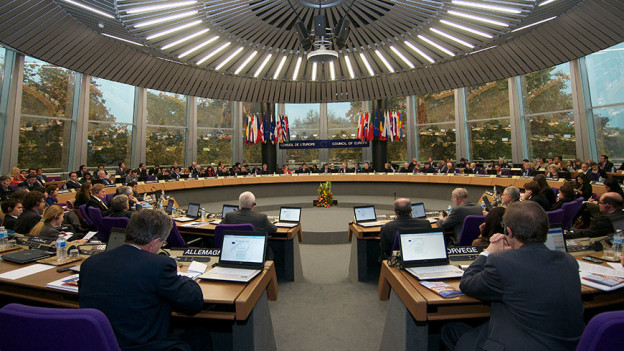
Annual general assembly meeting, Committee of Ministers of the Council of Europe
Although the decisions of the ECHR are binding for the states, it is not sufficient to assure that similar violations will not take place in the future. The CM examines the states’ legislation, politics and practice within the context of following-up and overseeing decisions of the ECHR to see if they need to be supervised, implemented and monitored. In a sense this implies the need for systematic and structural reform as pointed out by the violation decisions of the ECHR. As part of the monitoring procedure, member states are responsible for preparing “action plans” in accordance with the problematic areas pointed out by the decisions of the ECHR and present them to the CM. Although the action plans are not legally binding, the states are expected to comply with the precautionary measures proposed and the CM follows up on this process. NGOs can take part in this process by presenting their own monitoring reports.
The decisions of ECHR involve differing degrees of detail and guidance as to how the determined violations can be amended. As the number of decisions before it increases, the CM may group similar cases based on the “systematic and structural” problems they point to. In this fashion it is possible to follow-up on the execution of the process based on the headings of general reform.
The Context of Enforced Disappearances
A majority of the decisions on enforced disappearances in Turkey, for instance, are based on the 18th December, 1998 Aksoy versus Turkey judgment of the ECHR and have been brought together under the same heading with 205 others. This group includes rights violations by security forces from southeastern Turkey particularly during the 1990s, the substance of which vary from torture under detention, maltreatment, killing, enforced disappearance, damage to property etc. However, some of the current decisions on enforced disappearances have been compiled under the recent The West, Erdoğan and Others and Kasa decisions.
The Monitoring Report of the Memory Center
The European Council’s Committee of Ministers’ rule 9(2) concerning the implementation of the decisions and the conditions of amicable settlement gives the right to civil society organizations to report on the execution of judgments of ECHR. The work done by NGOs concerning their observation, reporting and lobbying is important both for making CM’s monitoring, activity more effective and to enable more pressure on governmental action plans.
Our monitoring report aimed precisely at accomplishing this, includes recommendations for the Committee of Ministers concerning the process of implementation of the decisions of the ECHR included within the Aksoy, the West and others, Erdoğan, and the Others, and Kasa groups.????
In its 2008 interim decision (See: CM/ResDH(2008)69) where the Committee of Ministers, in its evaluation of problems related to Turkey within the context of the Aksoy group where a majority of the judgments on enforced disappearances exist, had decided to close some of the headings. The following is a list of headings which were closed based on the information provided by Turkey to the CM.
- Inadequacy and inefficacy of procedural safeguards in police custody,
- Failure to protect lives of relatives of applicants under circumstances engaging the responsibility of the state,
- Improvement of professional training of members of security forces and problems related to the education system in addition to inadequacy of the legal framework concerning their activity
- Giving direct effect to ECHR requirements on domestic law
- Prompt and efficient implementation of the Law on Compensation of the Losses Resulting from Terrorism and from the Measures taken against Terrorism
- Professional training of judges and prosecutors
The closing of the headings implied that Turkey had taken satisfactory steps in the problematic areas related to group of decisions listed under the Aksoy group and that therefore the CM would no longer monitor the subheadings in these areas. The monitoring report that we present shows, however, that in spite of the reforms under the closed headings, problems currently persist in new forms and methods and therefore we advise that the CM should continue to monitor its decisions concerning forced disappearances under group 4, including the Aksoy group.

